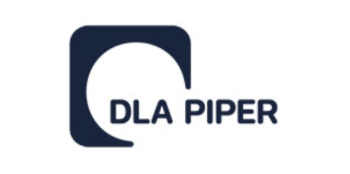Many undertakings operating in the professional indemnity (PI) insurance sector traditionally offer policies covering the civil liability of certified chartered accountants and bookkeepers arising from the issue of conformity certification for taxpayers' tax returns.
The Simplification Decree (Decree-Law 175/2014, published in the Official Gazette 277 (November 28 2014)), which simplifies tax matters and pre-compiled income tax return forms, has amended Article 39(1)(a) of Decree-Law 241/1997 and Article 22(1) of Ministerial Decree 164/1999. Article 39(1)(a) of Decree-Law 241/1997 now reads as follows:
"With the exception of cases where a corrective tax return is submitted, if the false conformity certification relates to the tax return submitted as specified in article 13, of Ministerial Decree no. 164 of 31 May 1999, the persons indicated in article 35 shall be obliged to pay the State or other tax authority a sum which is equal to the amount of the tax, penalty and interest payable by the taxpayer in accordance with article 36-ter of Presidential Decree no. 600 of 29 September 1973, provided that the false certification has not been issued as a result of the fraudulent or seriously negligent conduct of the taxpayer."
Article 22(1) of Ministerial Decree 164/1999 now reads as follows:
"Professionals and certification authorities [as referred to above] draw up a civil liability insurance policy, with a policy limit adjusted to the number of assisted taxpayers, as well as to the number of conformity certifications, asseverations and tax certificates issued and, in any case, of no less than three million euros, in order to ensure for their clients compensation for damages caused as a result of the service provided as well as ensure that the sums pursuant to article 39, paragraph 1, letter a) of Legislative Decree no. 241 of 9 July 1997 are paid to the government budget or that of any other tax authority."
The Revenue Agency (in particular, the Emilia Romagna regional agency) recently issued a circular which provides:
"in accordance with the new provisions laid down in art. 22, paragraph 1 of Ministerial Decree no. 164/1999, the civil liability insurance policy must: a) have a policy limit 'of no less than three million euros'; b) ensure 'that the sums pursuant to article 39, paragraph 1, letter a) of Legislative Decree no. 241 of 9 July 1997 are paid to the government budget or that of any other tax authority'."
The new provisions introduced by the Simplification Decree had given rise to a number of uncertainties, primarily regarding the following issues:
- the nature of the payment due to "the State or other tax authority [of the] sum which is equal to the amount of the tax, penalty and interest payable by the taxpayer" – in particular, whether this sum is due on account of the fine or as a result of a new kind of joint liability (between the accountant and the taxpayer);
- if this sum is a fine, whether the new provisions have introduced a special derogation from the existing provisions regarding the un-insurability of fines;
- whether the liability of the accountant is civil or administrative in nature (ie, for damages to the public purse); and
- where payment of indemnification is made to the accountant under the new provisions, whether PI insurers have recourse action against the taxpayer.
ANIA (the domestic association of insurance companies) and IVASS (the local regulator) have examined the criticalities of the new rules with a view to providing the market with some clarifications. In a March 19 2015 letter IVASS clarified that the sum due by accountants in accordance with the new rules is not a fine. Rather, it is compensatory in nature and therefore can be insured because it does not contravene Article 12 of the Insurance Code and Article 4 of IVASS Regulation 29 in the matter of the non-insurability of fines.
For further information on this topic please contact David Maria Marino at DLA Piper Italy by telephone (+39 02 80 61 81) or email ([email protected]).
This article was first published by the International Law Office, a premium online legal update service for major companies and law firms worldwide. Register for a free subscription.



